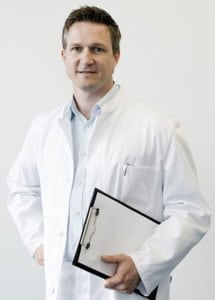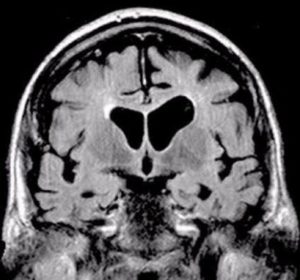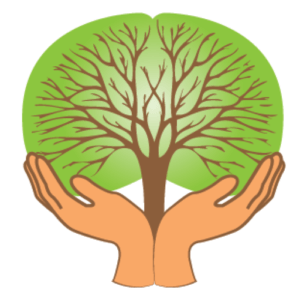 Thank you for considering brain donation! Advance planning offers the best chances for a successful brain donation. Brain banks require that brains are recovered within hours of the donor’s end-of-life. A few require a 4- or 8-hour interval. With few exceptions (such as if the intended donor is refrigerated within an hour of death), the maximum delay is 24 hours post-mortem. This requirement makes it very difficult to organize a brain donation after the donor has passed away.
Thank you for considering brain donation! Advance planning offers the best chances for a successful brain donation. Brain banks require that brains are recovered within hours of the donor’s end-of-life. A few require a 4- or 8-hour interval. With few exceptions (such as if the intended donor is refrigerated within an hour of death), the maximum delay is 24 hours post-mortem. This requirement makes it very difficult to organize a brain donation after the donor has passed away.
Brain donations are accomplished with the cooperation of up to seven parties:
- Donor’s Family, Next of Kin, or Healthcare Proxy
- Pathology Specialist
- Funeral Home or Cremation Organization
- Hospice Agency, if applicable
- Care Facility, if applicable
- Brain Bank
- Brain Support Network (BSN)
Donor’s Family, Next of Kin, or Healthcare Proxy
States vary as to who can give consent. In some states, the person who gives consent for a brain donation must be the healthcare proxy/agent (power-of-attorney), as identified in a legal document. In other states, the next of kin can give consent. The next-of-kin is often a member of the donor’s immediate family, such as a spouse, eldest child, sibling, or designated guardian. The donor’s consent is desired by some brain banks but is generally not required.
The family pays the cost of the brain donation at the time the brain donation work is performed. In the US, the average cost to families to accomplish brain donation is about $1,000. These are fees paid directly to the pathology specialist and funeral home (or cremation organization). For several disorders (PSP, CBD, MSA, FTD, PPA, Pick’s), a reimbursement grant of up to $1000 is available to families from affiliated non-profit organizations. For some disorders (PD, LBD, early-onset Alzheimer’s), a grant is available to families with a financial need. See our FAQ for more about costs.
 The intended donor or person who gives consent must provide to the brain bank the intended donor’s records from neurologists, psychiatrists, neuropsychologists and other specialists. In addition to these records, the brain bank is interested in the family’s description of neurological symptoms and a timeline of these symptoms. See our FAQ for more about the family’s role.
The intended donor or person who gives consent must provide to the brain bank the intended donor’s records from neurologists, psychiatrists, neuropsychologists and other specialists. In addition to these records, the brain bank is interested in the family’s description of neurological symptoms and a timeline of these symptoms. See our FAQ for more about the family’s role.
Download our Process for Brain Donation brochure to learn more about how families and Brain Support Network work together in the brain donation process.
Pathology Specialist
The pathology specialist (pathologist’s assistant, pathology technician, autopsy technician, or diener) performs the actual brain recovery. Sometimes, a pathologist (a specialized medical doctor) might perform this work. Generally, the cost of an MD’s services are higher than those of pathology specialists.
 The 24-hour window during which the brain recovery must be completed is strictly enforced by the brain banks. Brain Support Network (BSN) locates a pathology specialist, ideally available 24×7 (24 hours a day, seven days a week). At minimum, a pathology specialist must be available on a daily basis. If needed, BSN locates a back-up pathology specialist.
The 24-hour window during which the brain recovery must be completed is strictly enforced by the brain banks. Brain Support Network (BSN) locates a pathology specialist, ideally available 24×7 (24 hours a day, seven days a week). At minimum, a pathology specialist must be available on a daily basis. If needed, BSN locates a back-up pathology specialist.
The specialist recovers the entire brain. Depending on the research protocol, the brain may be separated into left and right hemispheres, or may remain whole. If separated, one half is frozen in dry ice or a special freezer; one half is “fixed” (i.e. immersed) in formalin. Brain recovery does not impact open casket funerals.
The specialist sends the brain to the brain bank in special containers provided by the brain bank. Specialists are paid directly by the family (or the estate). See our FAQ for more on the pathology specialist’s role.
Funeral Home or Cremation Organization
The funeral home or cremation organization generally provides the location at which the brain is recovered by the pathology specialist. Ideally, the funeral home is available 24×7 (24 hours a day, seven days a week). At minimum, the funeral home must be available during a multi-hour window (eg, 8am to 5pm) on a daily basis, even holidays. Sometimes the funeral home charges a fee; often, it charges no fee. We would consider $150 to $300 to be a reasonable fee, especially for after-hours use (evenings, weekends, or holidays).
Infrequently, a funeral home is unwilling to give a pathology specialist access to its facility. In this case, the donor must be transported to another facility for the brain recovery, and then returned to the funeral home. The family (or estate) pays the funeral home directly for facility use or transportation. See our FAQ for more on the funeral home’s role.
Hospice Agency
 If a hospice agency is involved, either the hospice nurse or social worker alerts Brain Support Network, the pathology specialist, and the funeral home (or cremation organization) when end-of-life is imminent. When death occurs, the hospice nurse alerts these same parties. When the funeral home arrives to transport the donor, the hospice nurse provides the brain donation paperwork (usually in two envelopes) to the funeral home representative. See our FAQ for more on the hospice agency’s role.
If a hospice agency is involved, either the hospice nurse or social worker alerts Brain Support Network, the pathology specialist, and the funeral home (or cremation organization) when end-of-life is imminent. When death occurs, the hospice nurse alerts these same parties. When the funeral home arrives to transport the donor, the hospice nurse provides the brain donation paperwork (usually in two envelopes) to the funeral home representative. See our FAQ for more on the hospice agency’s role.
Care Facility
If the intended donor lives in a care facility, care staff alerts Brain Support Network, the pathology specialist, and the funeral home (or cremation organization) when end-of-life is imminent. When death occurs, facility staff alerts these same three parties. When the funeral home arrives to transport the donor, the facility staff provides the brain donation paperwork (usually in two envelopes) to the funeral home representative. See our FAQ for more on the care facility’s role.
Brain Bank
 The only way to obtain a confirmed diagnosis is through post-mortem tissue examination. The brain bank performs a microscopic analysis of the brain tissue. The brain bank attempts to correlate what is seen in the neurological records and in the written family report of symptoms with the brain pathology found. A neuropathologist prepares the neuropathology report (i.e. brain autopsy report) containing the diagnosis confirmed by tissue analysis and sends this report to the family. Brain banks do not charge an autopsy fee.
The only way to obtain a confirmed diagnosis is through post-mortem tissue examination. The brain bank performs a microscopic analysis of the brain tissue. The brain bank attempts to correlate what is seen in the neurological records and in the written family report of symptoms with the brain pathology found. A neuropathologist prepares the neuropathology report (i.e. brain autopsy report) containing the diagnosis confirmed by tissue analysis and sends this report to the family. Brain banks do not charge an autopsy fee.
Brain banks store tissue for future research. Frozen brain tissue is used for DNA studies. Brain banks are most often affiliated with universities or other research institutions as they have the deep-pockets to store tissue in perpetuity.
See our FAQ for more on how Brain Support Network selects the best brain bank to receive the brain donation. Of the 1,400 families we have helped, most brains have been donated to the Mayo Clinic brain bank in Jacksonville, Florida. Some have been donated to the Mayo Clinic brain bank in Rochester, Minnesota.
Brain Support Network
Brain Support Network (BSN) has helped over 1,400 families in the US successfully accomplish brain donation. We are honored to assist your family, too.
Brain Support Network selects pathology specialists, confirms that the funeral home will share its facility (or arranges for donor transportation), customizes consent paperwork, prepares detailed instructions for the family and other parties involved in the effort, troubleshoots the process if issues arise, confirms that tissue arrives at the brain bank, and ensures the brain bank delivers a diagnosis to the family.
Brain Support Network maintains a roster of suitable pathology specialists across the United States. Many specialists perform multiple brain recoveries in a single year. Specialists that do not perform as expected are removed from the roster.
In areas where we have assisted with multiple brain donations, BSN maintains a roster of cooperative funeral homes and cremation organizations. A “cooperative” funeral home is one that allows the brain donation work on its premises, on a 24×7 basis, and charges no fee (or a reasonable fee).
 Brain Support Network is an independent non-profit, not affiliated with pathology specialists, funeral homes, cremation organizations, hospice agencies, care facilities, or brain banks. BSN manages a staff of employees and volunteers that coordinate brain donations. BSN depends on charitable contributions to defray the costs of the services that it provides. Please donate now to support our work!
Brain Support Network is an independent non-profit, not affiliated with pathology specialists, funeral homes, cremation organizations, hospice agencies, care facilities, or brain banks. BSN manages a staff of employees and volunteers that coordinate brain donations. BSN depends on charitable contributions to defray the costs of the services that it provides. Please donate now to support our work!
